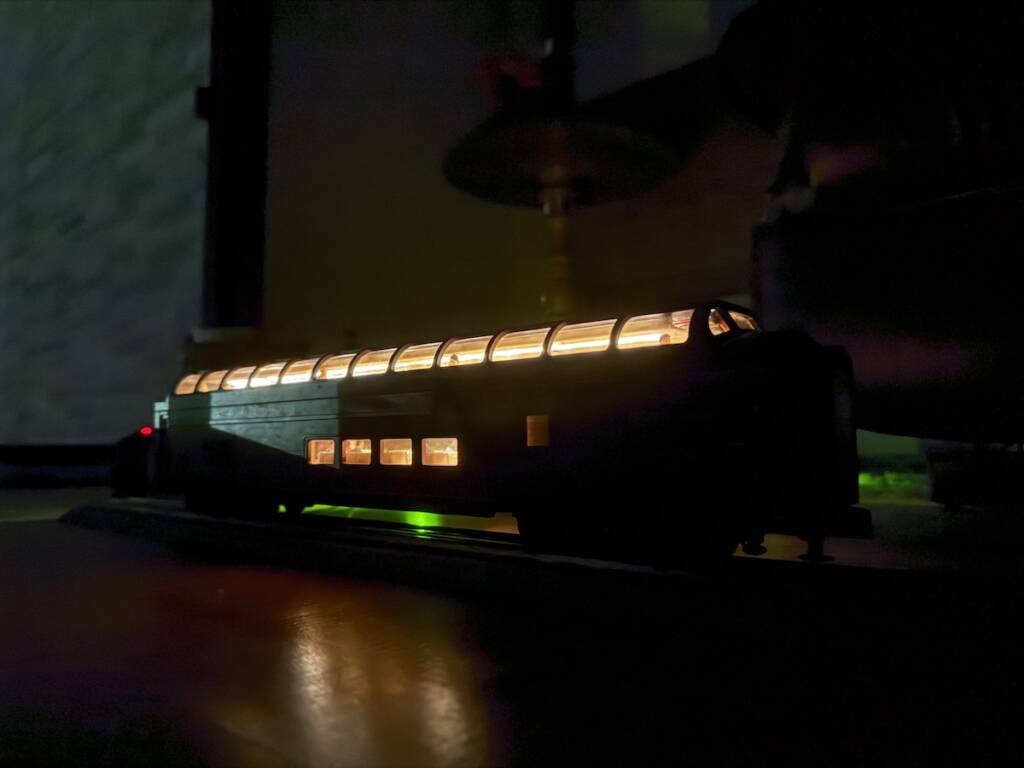
“When life gives you lemons, make lemonade.” At least, that was my thought process when I received this MTH Premier Norfolk & Western 18-inch, full-length dome car. Though a beautiful model from 2004, it came with older, 18V lamp bulbs. Initial track power testing immediately revealed several issues: Lights only turning on in the lower […]
Read More…
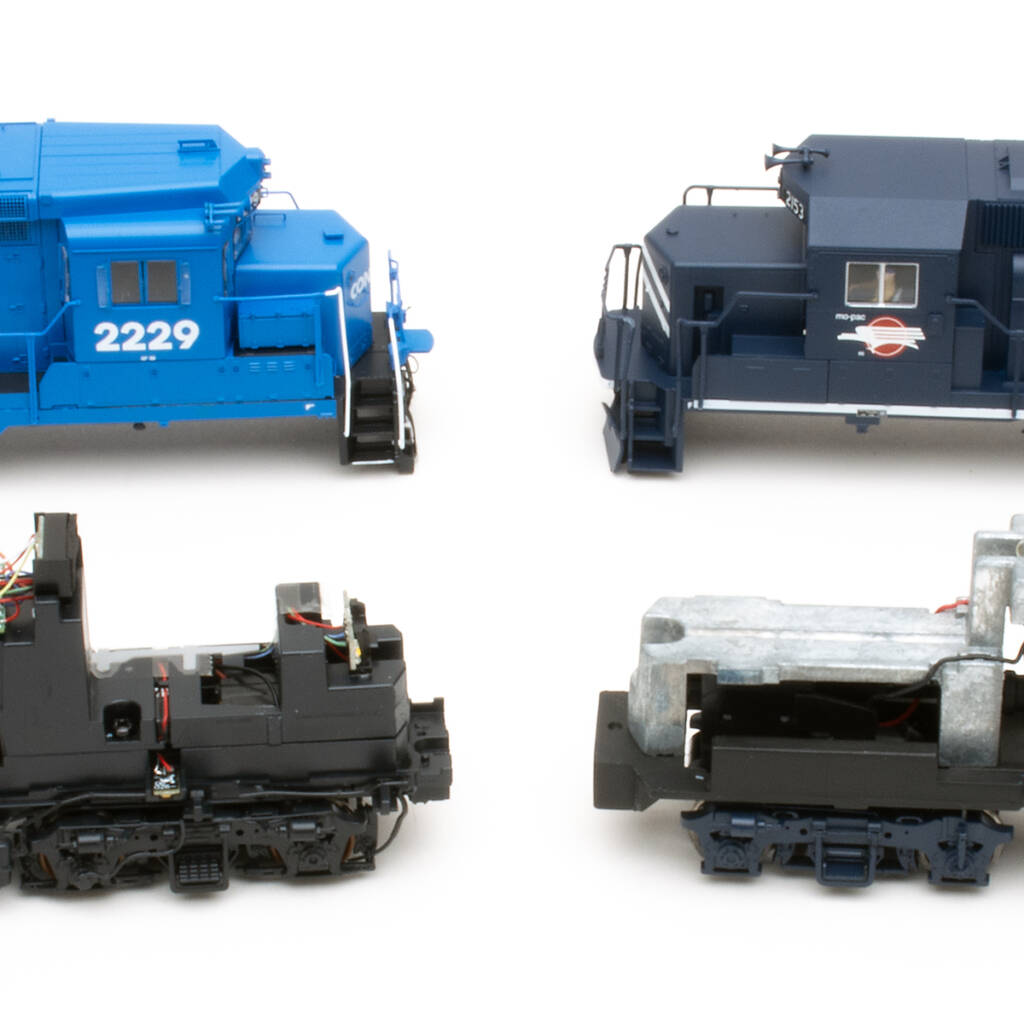
Q: I have several On30 locomotives with Digital Command Control (DCC), but was recently gifted a passenger set that has a direct-current (DC) locomotive. If some DCC locomotives are sitting on the track, can I use a DC transformer to operate the DC engine on the same track without damaging the DCC locomotives? What would […]
Read More…
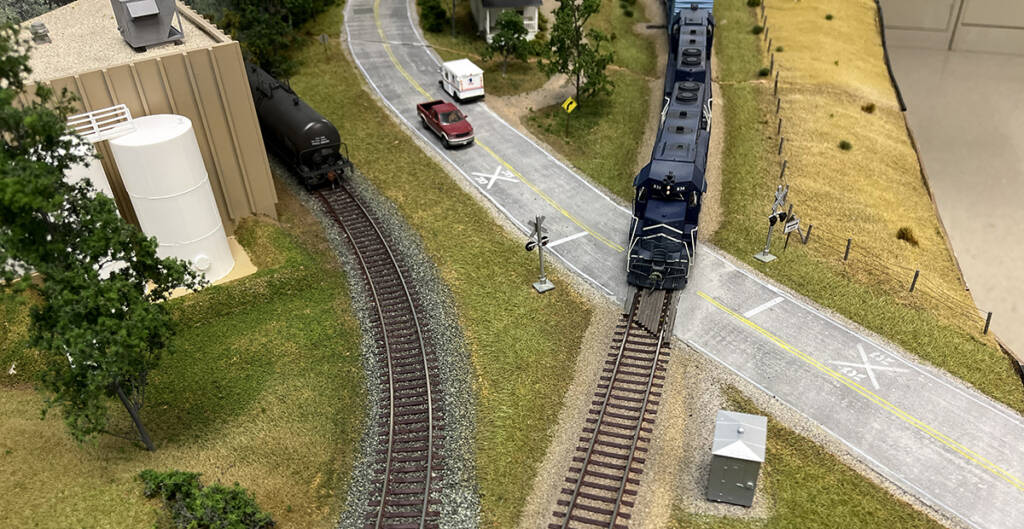
By the time you’ve laid and wired your track and installed your train and turnout control system, it’s easy to let construction of your new layout take a back seat to running trains. After all, the entire purpose of building the layout is to be able to have a place to enjoy operating your model […]
Read More…
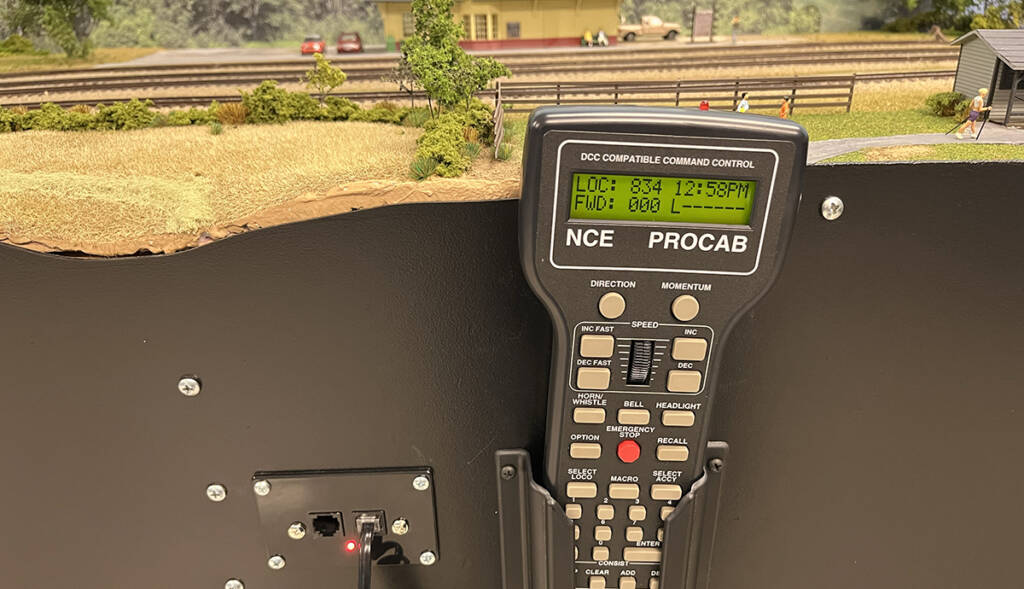
We pick up where we left off in part one. Having recently completed the roadbed, track, and wiring on our East Troy Industrial Park project layout, we advance now to… Digital Command Control Digital Command Control (DCC) is the best way to power and operate a brand-new model railroad. The biggest advantage of DCC is […]
Read More…
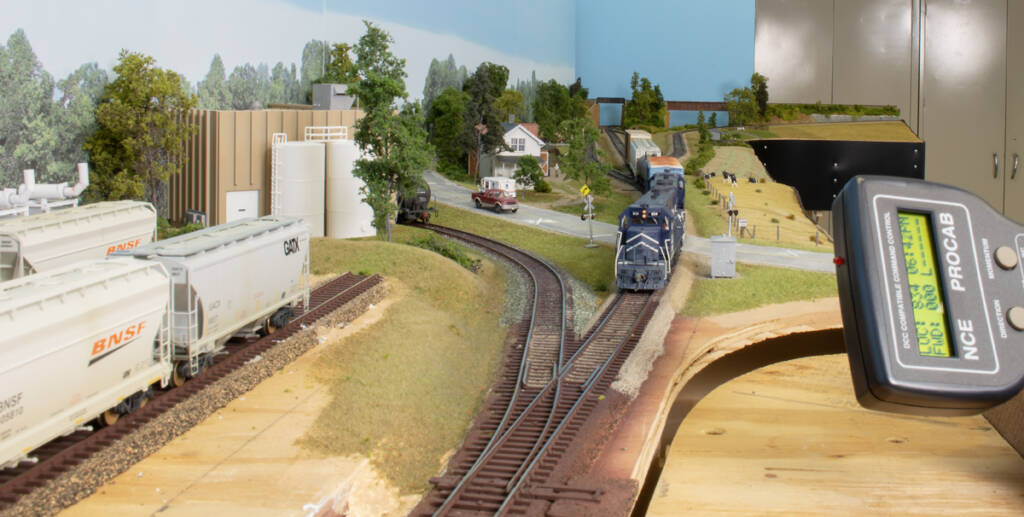
There’s nothing quite like that feeling of running a “first train” on a new model railroad. Although the scenery is still bare benchwork, the look and sound of those first wheels rolling under their own power along nickel-silver rails produces a thrill that never gets old. By the time we reach the conclusion of this […]
Read More…
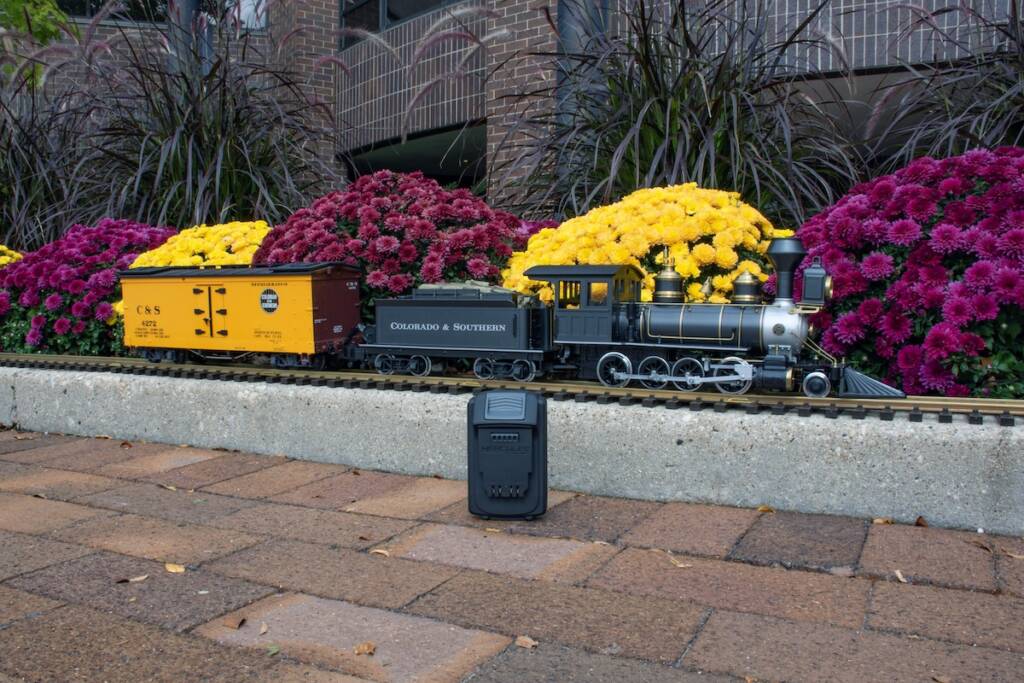
I never thought I’d get serious about Large scale (G gauge) model railroading, but here I am. This past summer, I successfully bid on a 1:22.5-scaled C-16 2-8-0 in Colorado & Southern livery at an online auction. This model, from the 1989 product line of the former Delton Locomotive Works (before its tooling went to […]
Read More…
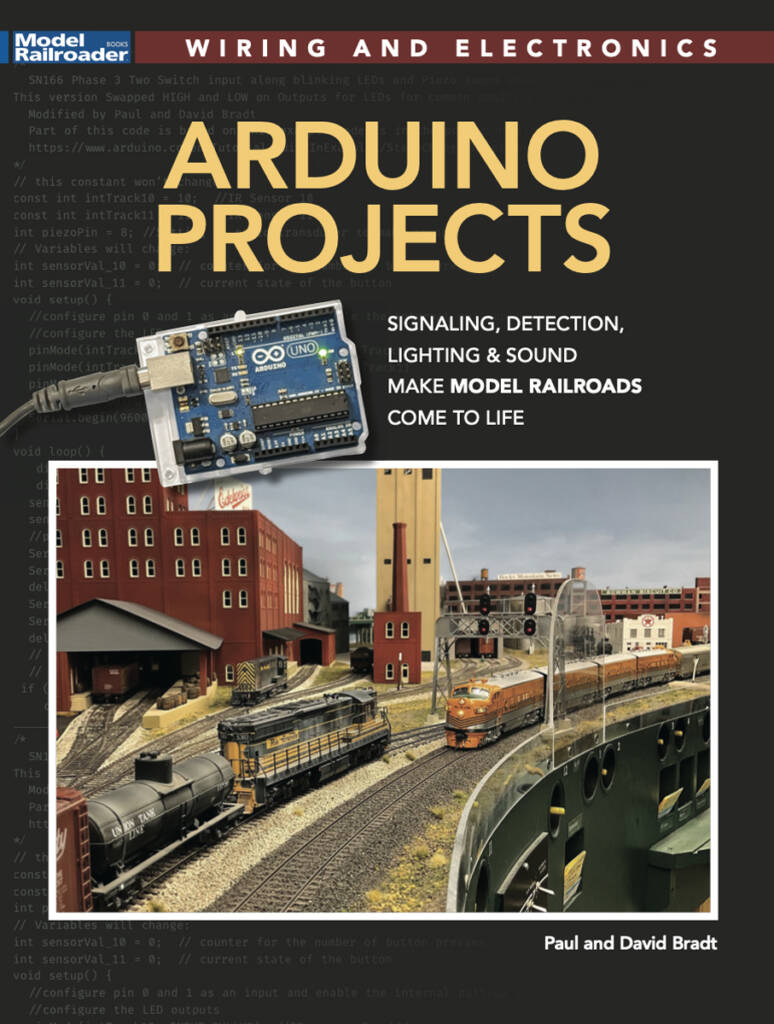
Paul and David Bradt’s Ardiono Projects offers multiple ways to use Arduino and Raspberry Pi microcontrollers for your model railroading projects. Buy the book here. Code for Button/Blink Test (SN095) – Chapter 1, page 11 This code is basic but allows the reader to gain insight into key elements for several other projects in this […]
Read More…
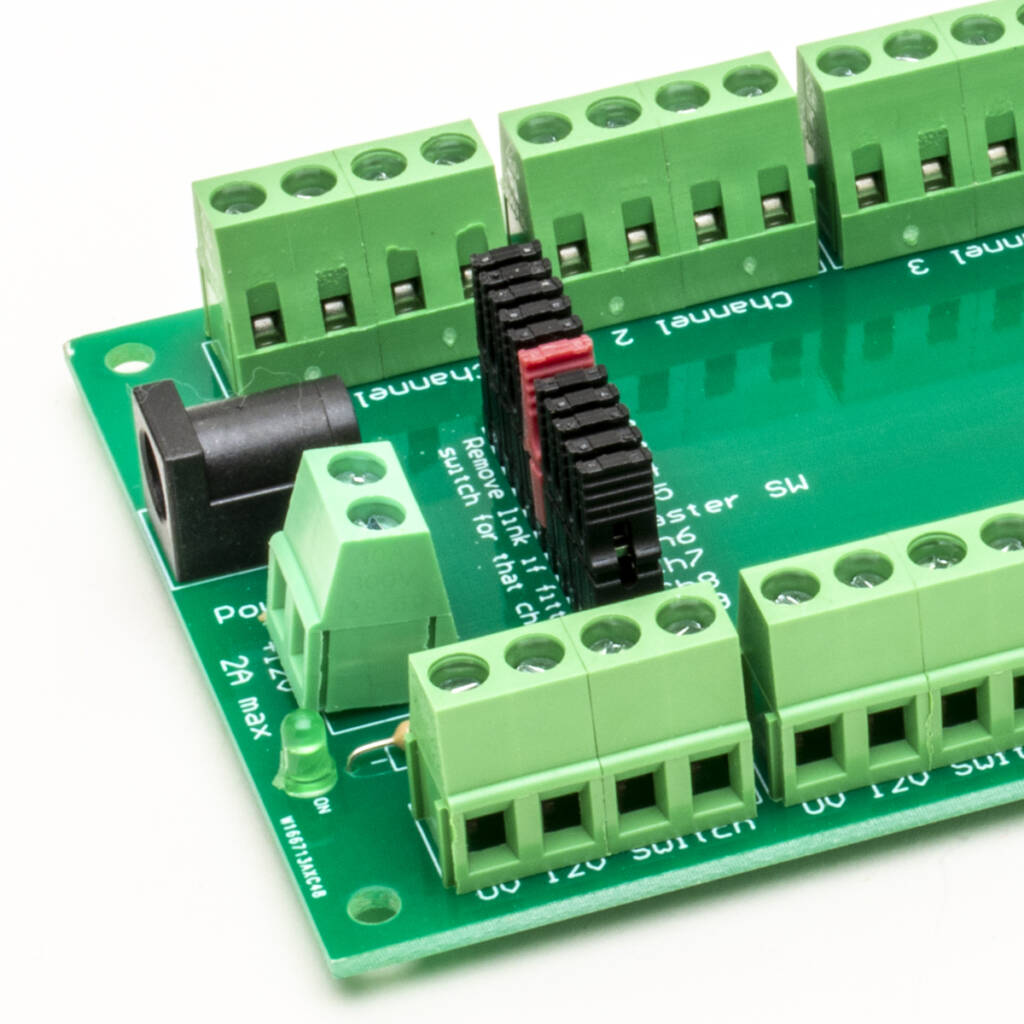
Hobby Trax USA power distribution board Price: $24.95 Manufacturer: Hobby Trax USA, 1237 Victoria Ave., No. 310, Oxnard, CA 93035; 518-727-2009; hobbytrax.us Hobby Trax USA power distribution board features: 10 independently switched channels Can be fitted with master control switch (not included) Easy to wire For all 12V DC devices Green light-emitting diode illuminates […]
Read More…
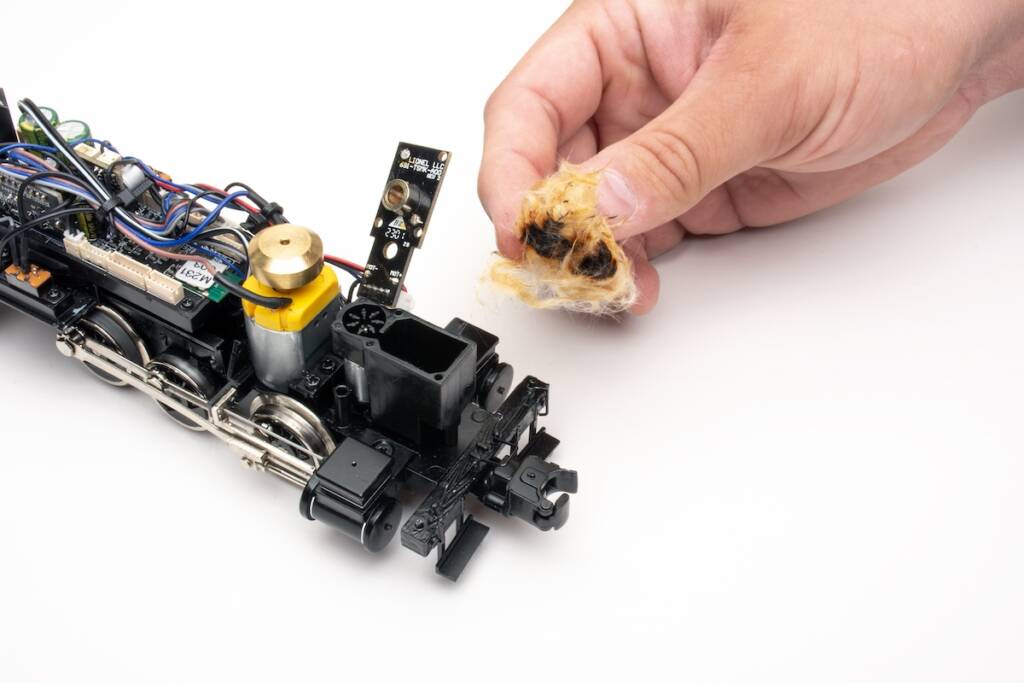
Is your locomotive struggling to produce a good amount of smoke, even after cranking up the smoke volume and adding fluid? While it’s not the one-and-only culprit, a charred smoke wick is a common problem. The wick is a strand or braided fiber glass material in the smoke unit’s heating chamber. It generates the smoke […]
Read More…
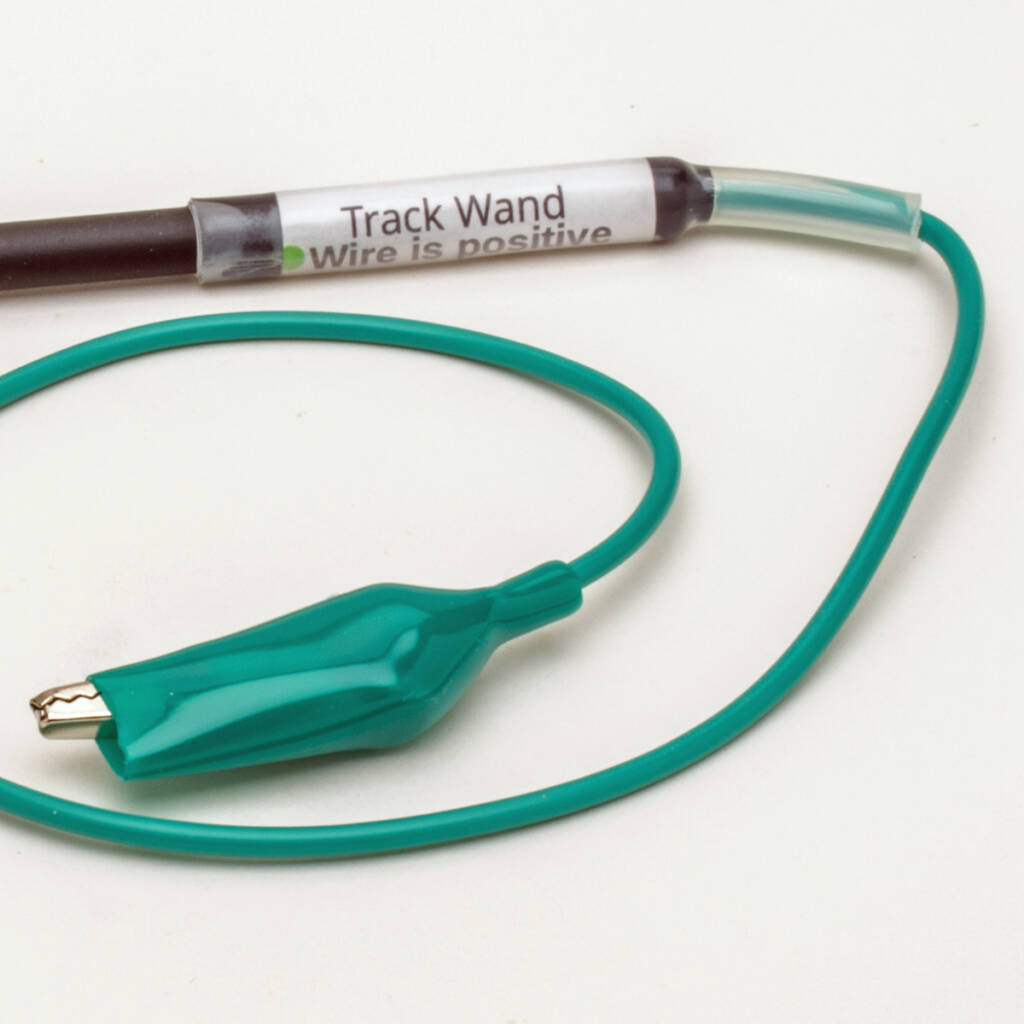
Hobby Trax USA track wand tester Price: $9.99 Manufacturer: Hobby Trax USA, 1237 Victoria Ave., No. 310, Oxnard, CA 93035; 518-727-2009; hobbytrax.us Hobby Trax USA track wand tester features: Easy to use Fitted with 20” of wire and an alligator clip to attach to rail For use on DC layouts, remove locomotives from layout and […]
Read More…
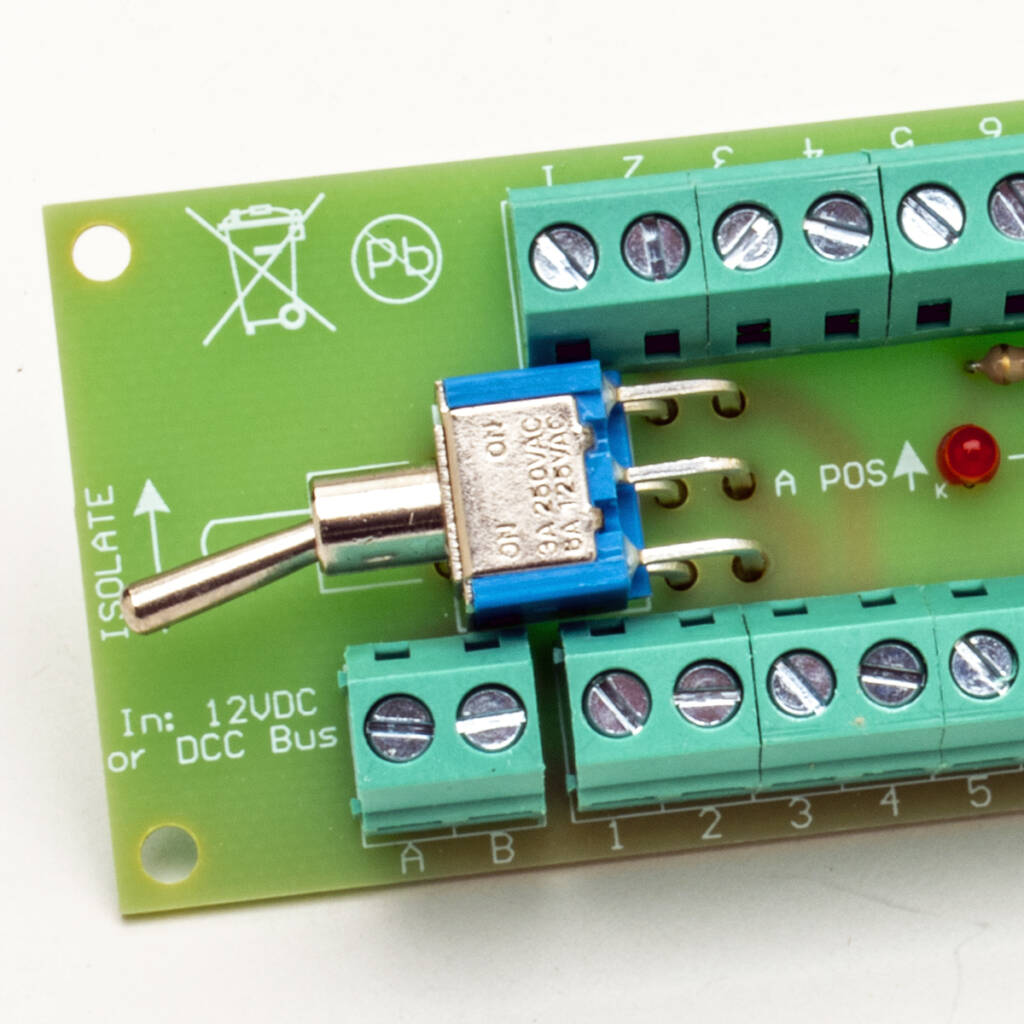
Hobby Trax USA Hydra DC and DCC bus bar Price: $9.95 Manufacturer: Hobby Trax USA, 1237 Victoria Ave., No. 310, Oxnard, CA 93035; 518-727-2009; hobbytrax.us Hobby Trax USA Hydra DC and DCC bus bar features: 16 terminals per board Easy to wire In DC mode, the bus bar will simply allow multiple connections to the […]
Read More…
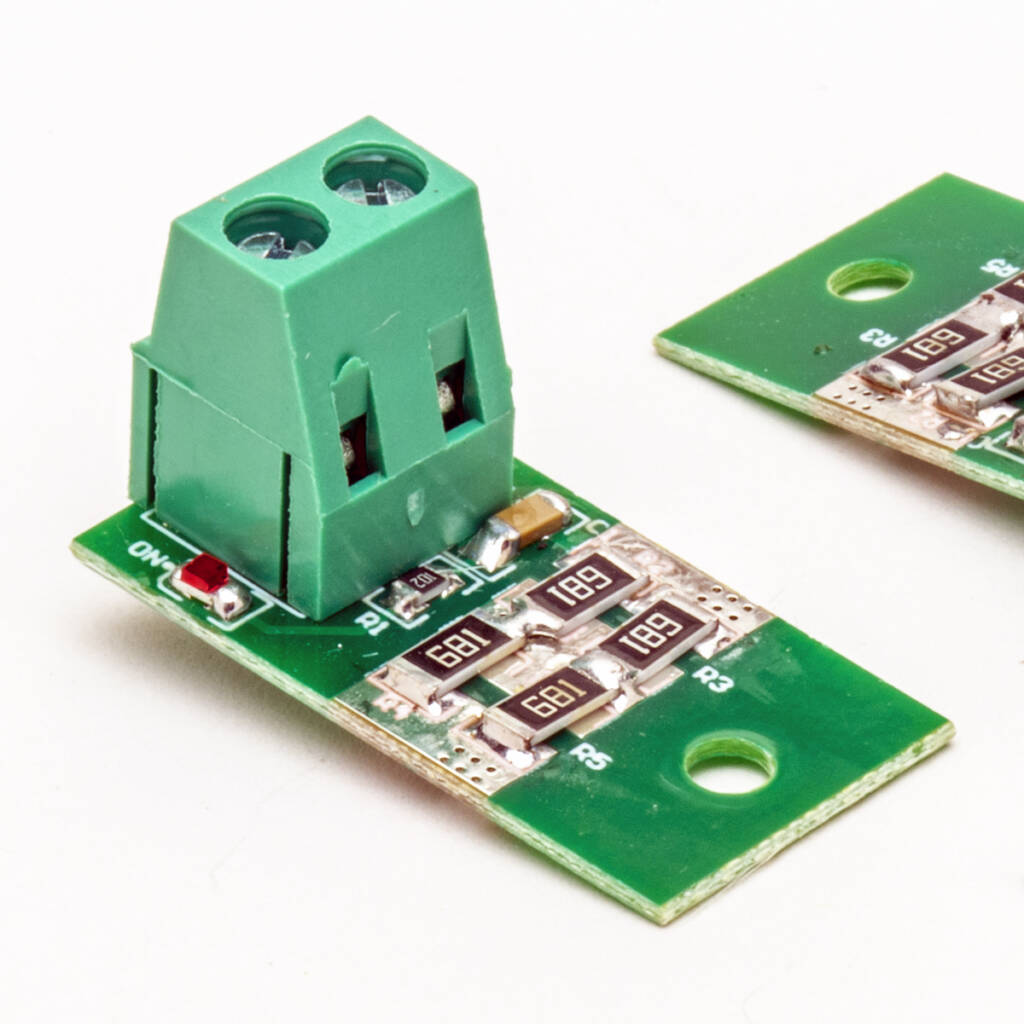
Hobby Trax USA DCC Spike Busters Price: Two-pack, $6.99 Manufacturer: Hobby Trax USA, 1237 Victoria Ave., No. 310, Oxnard, CA 93035; 518-727-2009; hobbytrax.us Hobby Trax USA DCC Spike Busters features: All-new surface-mount design Designed to fit as a pair to the ends of a Digital Command Control bus (no more than two are needed, regardless […]
Read More…












